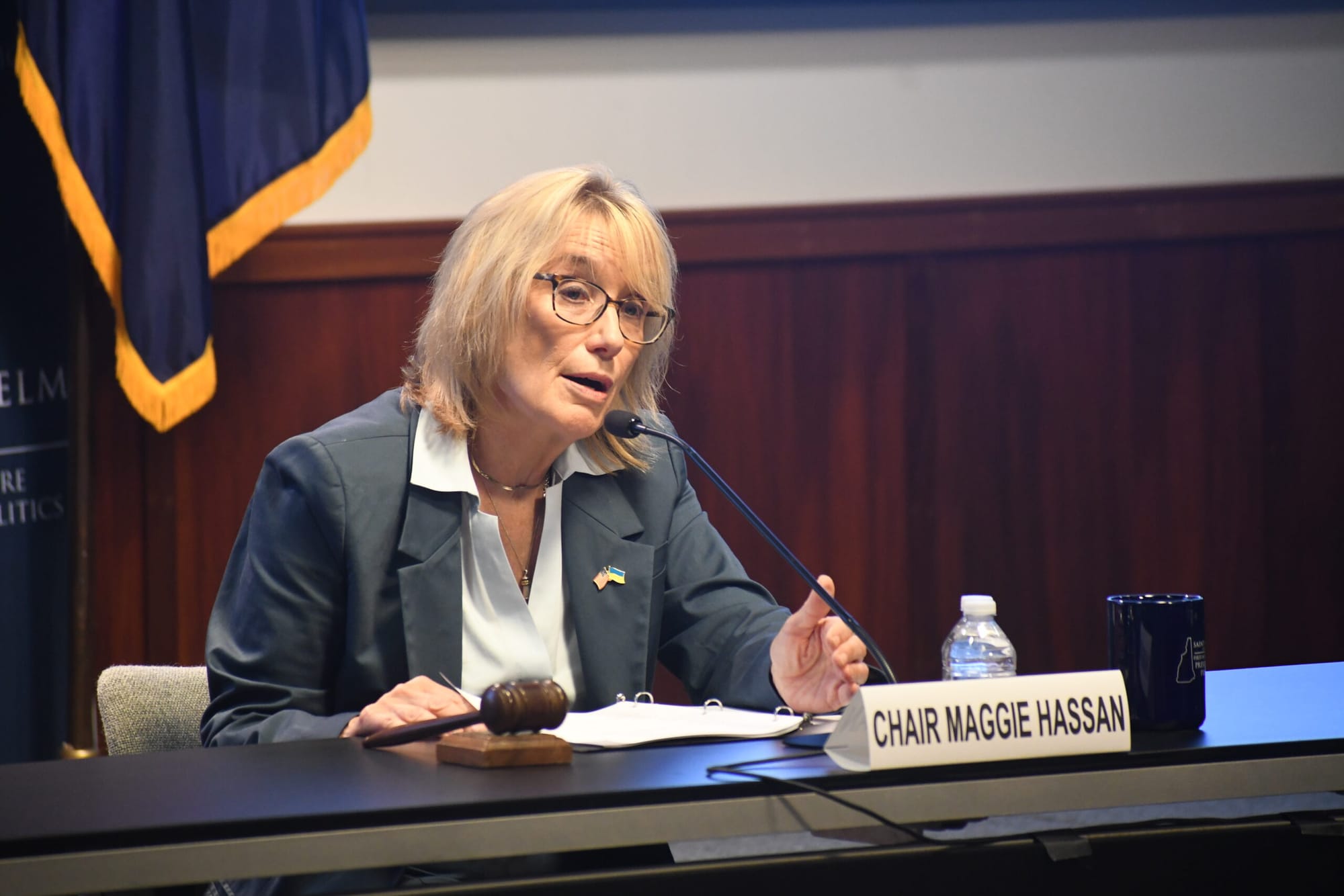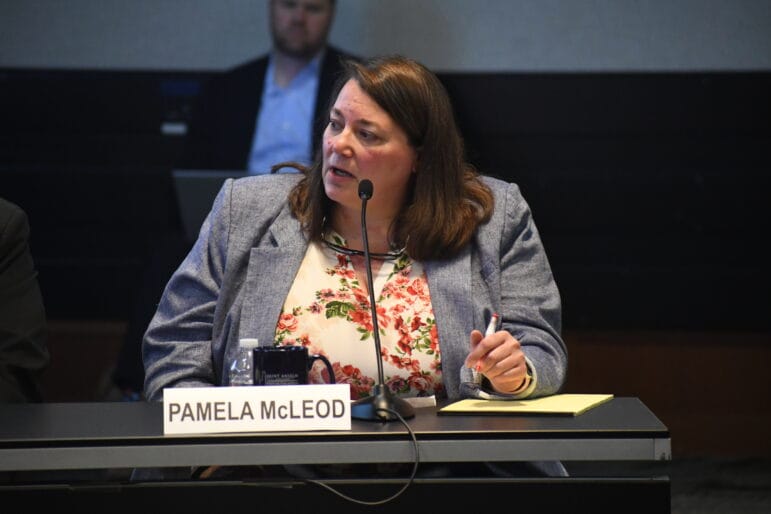Hassan holds Senate cybersecurity field panel
As America’s move toward conducting more aspects of life on the internet grows, public schools and other government entities have become frequent targets of online attacks. However, a collection of New Hampshire experts believe that efforts can be made to stem this tide.


GOFFSTOWN, N.H. – As America’s move toward conducting more aspects of life on the internet grows, public schools and other government entities have become frequent targets of online attacks. However, a collection of New Hampshire experts believe that efforts can be made to stem this tide.
On Monday, U.S. Senator Maggie Hassan (D-NH) held a field panel of the U.S. Senate Emerging Threats and Spending Oversight Subcommitee at the New Hampshire Institute of Politics at Saint Anselm College.
In a series of questions and answers between Hassan and the panel of local experts, which Hassan has conducted on various topics in other parts of New Hampshire, discussion on the costs of cyber-attacks on school districts and strategies on how to respond were discussed.
It was noted that $29.3 million has been lost in 1,416 cyber ransom attacks in New Hampshire alone, with a $10.3 billion amount nationally. New Hampshire Cybersecurity Coordinator Richard Rossi said that two-thirds of school districts across the country lack an employee dedicated to data security and 12 percent of school districts nationally expend no money on cybersecurity.
Alton School Board Chair and former Concord School District Chief Information Officer Pamela McLeod said that significant data breaches, such as one in Concord where employee data was stolen, can require weeks of response. However, she and other on the panel said New Hampshire is becoming well known across the country for its investment on the topic and success in garnering federal financial support toward cybersecurity. Still, she indicated more needs to be done.
“We don’t need more documents and more instructions,” she said. “What we need is more resources.”

Other members of the panel also hoped that school districts can begin to do more to prevent future data breeches through measures like switching their domains to .gov, which is harder to spoof, and coordination with state and federal law enforcement resources provided by the U.S. Secret Service, National Computer Forensics Institute, Cybersecurity and Infrastructure Security Agency among others.
Hassan discussed efforts from Congress to help coordinate efforts in fighting cyberattacks such as the Cybersecurity State Coordinator Act, elements of which were introduced as an amendment in the annual National Defense Authorization Act.
“Cyberattacks on our hospitals, schools, and local governments are becoming an increasingly common occurrence, especially amid this pandemic. We must provide these entities with the support that they need to prevent and mitigate cyberattacks,” said Hassan in a statement prior to the panel. “The Senate took an important step to help bolster cybersecurity at all levels of government by passing our bipartisan measure to create a Cybersecurity Coordinator position in every state as part of the national defense bill. These cyber experts will be a bridge between the federal government and state and local entities, and it is imperative that the President swiftly sign this bipartisan bill into law.”
In addition to advising local school districts seek out additional resources to prevent cyber-attacks, experts on the panel also urged employees within school districts to make data security a priority of everyone immediately if it is not already so.
“If we can’t get this right now, it’s just going to get worse,” said




